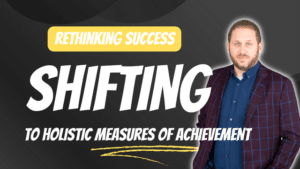Managing a team is both challenging and rewarding. To see the growth and development of team members evolve over time can be exciting to see and contribute towards. Despite your best though, results may vary greatly depending on the person. Why do some tactics work for some, but not others? It all comes down to the fact that there are different types of people in the business. For the purpose of this article, I am not talking about personality, or experience or demographics. What I will be referring to are the characteristics that define people at work and as part of all teams.
Who are the 3 types of team members?
There are three main types of people that you will lead:
- Active: Those who make things happen.
- Passive: Those who watch things happen.
- Ineffective: Those who ask, “what happened?”
How you manage, lead and communicate to each type of person will and should vary.
Active: Those Who Make Things Happen
These are some of the most important team members. They are leading initiatives, helping to drive change and continuous improvement, who are primarily self-sufficient. These team members hate being stagnant or working within the status quo. They actively seek to challenge new processes and tools, with the mindset that getting better each day is more important than hitting a plateau. These are also some of the most engaged members of your team.
Reward these team members with both your time (as visibility is a great form of recognition) and access to information, resources, and plans. These people are ones who can help take a team from mediocrity to monumental success. The more you can hire and build your team with these people who have a track record of execution and delivery, the better positioned as a leader you will be.
Passive: Those Who Watch Things Happen
These can be some of the most frustrating team members to work with. They see a problem but never offer a solution. They are happy to coast and do the bare minimum to get by. Often its because they don’t care, or they don’t understand the why or purpose of what is being asked of them. Typically, these folks are not engaged in their roles either.
Unfortunately, as much as they are passive, they will complain and put up barriers to their and others success. In some situations, these people can become so toxic that they start to pull those active, high-potential leaders down to their level. As a leader, you need to actively manage these passive influencers, and sometimes that includes making the hard decision, to move them out or off your team. Knowing what drives these types of people, in terms of what motivates them or what they care about is going to be key to try and adjust their approach.
Ineffective: Those Who Ask, “What Happened?”
On many teams, there are members who neither actively contribute to driving initiatives and change nor passively sit by and watch things happen. These people are the ones in the middle, toiling away in their own world, oblivious to what is happening around them. Often surprised by new initiatives or changes in personnel within the team, these people lack both the desire to be involved or have the connection or relationship with others to be in the know.
I classify these people as ineffective as they are often unable to decide, contribute or truly become leaders on the team. They will require tremendous coaching and resources to become active and consistently high-contributing members on the team. As a leader, you may even struggle to communicate with these people, as they tend to be the ones who rarely read their emails thoroughly. They may miss pertinent details when talking face-to-face or over phone/video too.
What Should You Do?
To build the most effective team possible, you need to realize that you will have all types of people. All team members should have clear roles and expectations required of them that they thoroughly know and understand. Hiring for high-potential superstars should always be the goal as well. Far too often, we compromise when building a team, settling for a variety of reasons. The more a leader can maintain a high standard of expectations when choosing who becomes part of their team, the stronger the team will be. Expect the best and often you will get it. Settle or lower your expectations, people will never fail to deliver the bare minimum.
For more resources on ways to hire high-potential, active contributors, or shape your team culture to become the most effective, reach out to us for additional help. We aim to help all leaders evolve their management skills to leap to the next level of success. For a regular dose of advice, tips, and tricks from Evolving Management, follow us on our company LinkedIn page. You can also follow me or my podcast, The Chris Hanna Show on Twitter, Instagram, and LinkedIn or visit chrishanna.ca for more solutions. Let’s connect.





